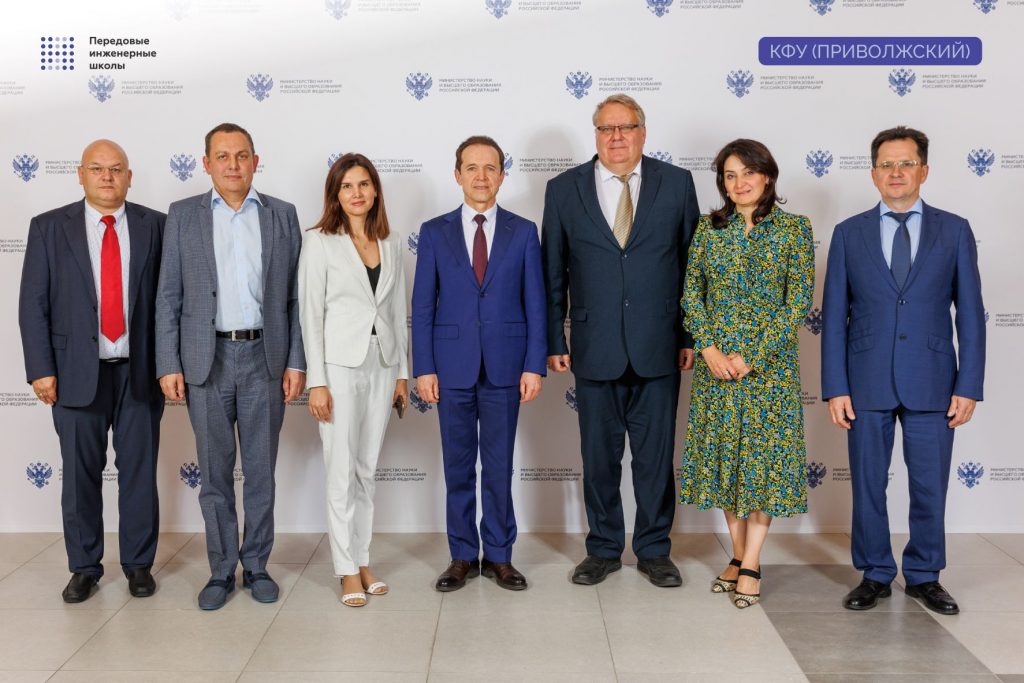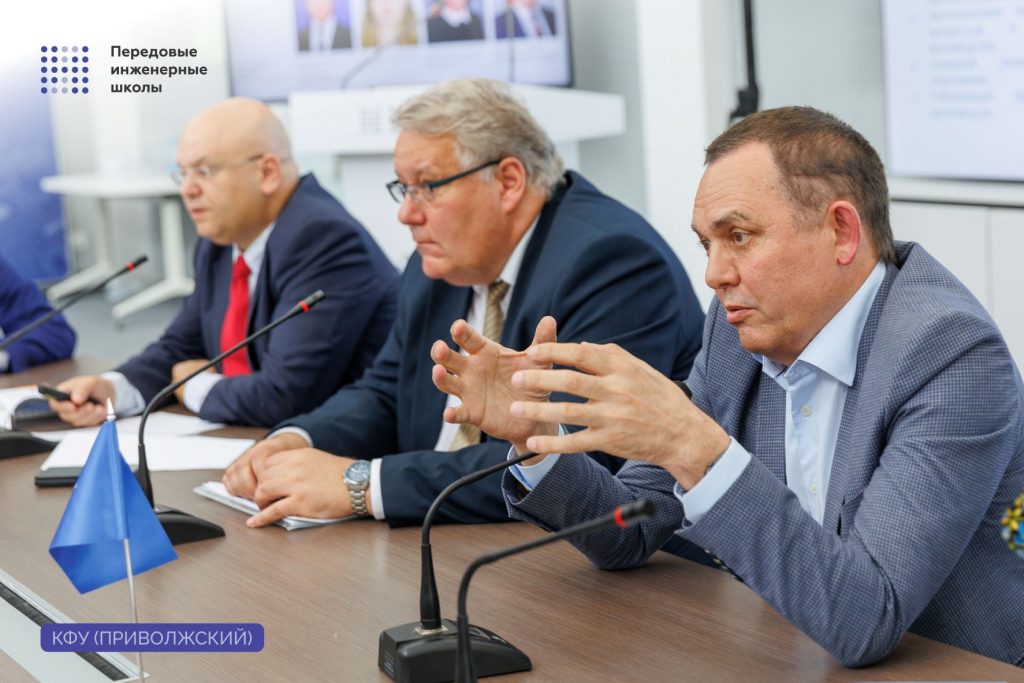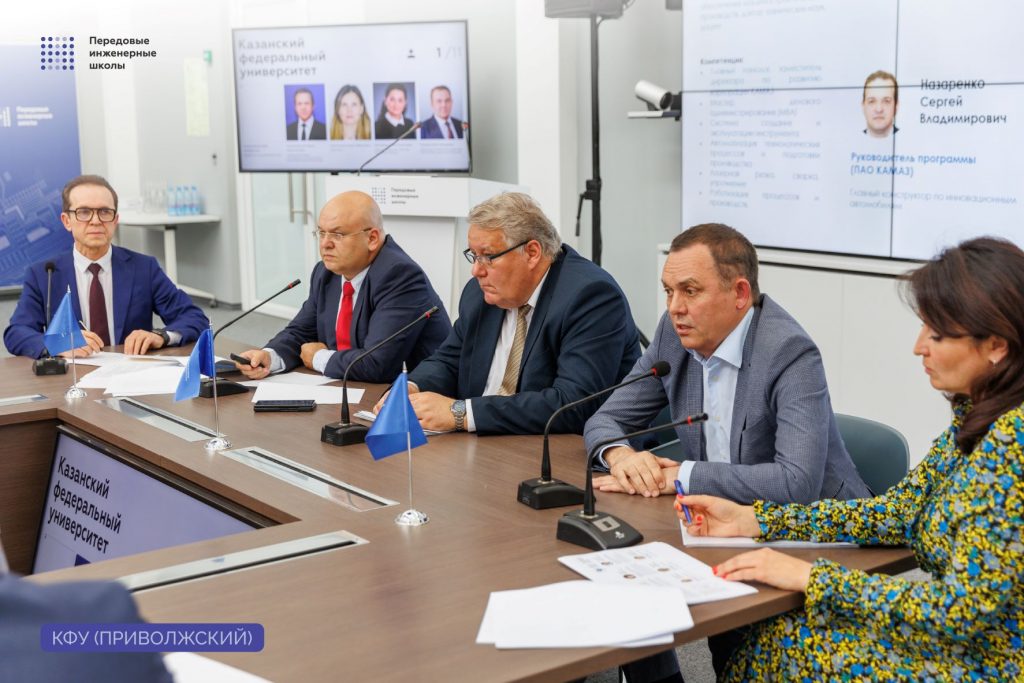Kazan University presented its automaking engineering school plan in Moscow



The pitch was made on 19 June.
The pitch contest involves 89 universities from 41 Russian provinces. KFU’s delegation in Moscow comprised Acting Rector Dmitry Tayursky, Vice-Rector for Economic and Strategic Development Marat Safiullin, Director of the Naberezhnye Chelny Institute of KFU Makhmut Ganiev, and Vice-Premier of Tatarstan Leyla Fazleeva. The presentation was given by newly appointed head of the Cyber Auto Tech advanced engineering school (AES) Ravil Khisamutdinov.
“When creating the AES, we took account of many key factors, including territorial advantages. The Kama industrial agglomeration is a territory where 5 leading industrial centers are dynamically developing, forming more than 3% of the Russian gross industrial turnover. The mass of high-tech service companies provides a steady demand for engineers of a new formation. The annual need for engineering personnel of enterprises located only in this territory is more than 5 thousand people. It is predicted to double by the year 2030. I would like to note that KFU has a serious innovative backlog and significant experience in implementing educational programs in the areas of AES’s activities to cover this need,” the speaker emphasized.
The University decided to work on three engineering frontiers of the automotive industry – intelligent cars, vehicles with low/zero carbon footprint, and technologies of intelligent manufacturing.
The AES’s strategic partner is KAMAZ, Russia’s largest truck producer and one of the twenty largest industrial enterprises in the nation. KAMAZ’s participation seeks to guarantee a very high level of integration between educational processes and specific manufacturing objectives.
As Khisamutdinov mentioned, the engineering school aims to launch production of electric trucks with Russia-made accumulators before 2025. Additionally, before 2026, the AES seeks to present first driverless trucks and solutions in hydrogen fuel – and full-cycle production of hydrogen engines and batteries before 2030.
All the initiatives will be connected to the province’s infrastructure of high-tech entrepreneurship. Much attention will be paid to stimulating student to create startups.
“The basic principles of our approach are the maximum involvement of students in solving real production problems, the formation of a vision of the entire system of division of labor, the provision of varied learning paths, and the support of entrepreneurial initiatives. We have no doubt that we will be able to create a new powerful driver for the development and increase of the competitiveness of the territory in Tatarstan,” concluded the school head.
The school will be located at Naberezhnye Chelny Institute, in the same city as the anchor partner KAMAZ. Among the planned partners are leading universities and institutions, such as Joint Institute for Nuclear Research, Moscow Institute of Physics and Technology, Northeastern Federal University, Moscow State University, Saint Petersburg State University, Skoltech University, Kazan Research Center of the Russian Academy of Sciences, Moscow State Technical University, Southern Federal University, and STANKIN University; and corporations like ICL, KRET, Rostec, and Roscosmos.

